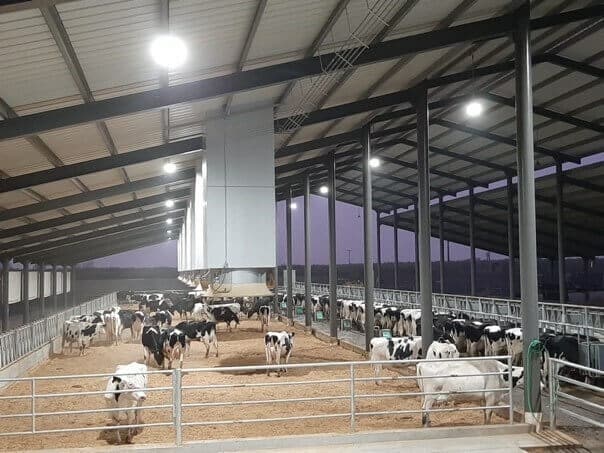The Natural Resources Conservation Service (NRCS) Conservation Innovation Grants (CIG) program of the USDA has given a $1.4 million grant to Native Microbials (website), a biotechnology business focusing on animal health and nutrition. Galaxis Frontier, a next-generation microbial feed additive from Native Microbials that intends to lower methane emissions from dairy cattle, will be developed and researched thanks to the award.
Methane is a potent greenhouse gas that contributes to climate change and is emitted in significant quantities by dairy animals. Unfortunately, existing techniques to reduce these pollutants are either too expensive or haven't been tested as long-term fixes. Through the “Fighting Methane with MIGHT (Microbiome Insights into Greenhouse Gases using High-throughput Technologies)” study, researchers will examine how Galaxis Frontier affects commercial dairy farms' feed efficiency and enteric methane emissions. A non-invasive, precise, and scalable oral microbiome-based approach for measuring enteric methane emissions from dairy cows on farms will also be developed as part of the research.
Dr. Ermias Kebreab from the University of California, Davis, Dr. Jared Talley from Boise State University, and Dr. Alfonso Lago from DairyExperts in Tulare, California, will all collaborate on the study. Additionally, to find dairy farms to participate in the on-farm experiment, Native Microbials will collaborate with the US Dairy Education & Training Consortium (USDETC), the Northwest Dairy Association – Darigold (NWDA), and Dr. Robert Hagevoort from New Mexico State University. To gauge dairy farmers' opinions, obstacles, and risks related to implementing climate-smart agricultural solutions, NWDA will also provide them with a quantitative survey.
Mallory Embree, Chief Science Officer at Native Microbials, stated, “We are happy to receive this award from the USDA and to cooperate with such renowned scientists. “Our innovative product made with rumen-native microbes has the potential to significantly lower greenhouse gas emissions from the dairy industry,” says the researcher. With the support of this money, we will be able to assess Galaxis Frontier's effects on the environment, the economy, and society and develop a new way to measure methane emissions from dairy cows kept on farms.
Image provided by Native Microbials


